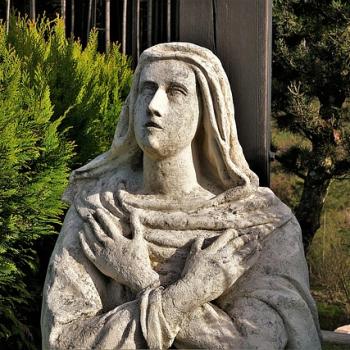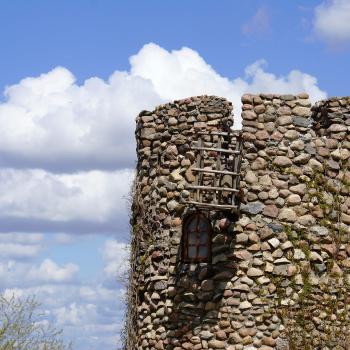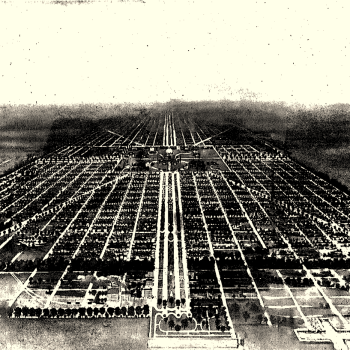By the way, I'm not making this up, either. Again, there is a consensus among historians of the Crusades that there is no record of Muslim concern with the Crusades until the 20th century.
What exactly is the connection with Israel? Israel was established and supported by the West, and the rulers of Islamic nations utilized the rhetoric of the Crusades to rally support against Israel, or distract from their own failures, or what?
All of the above. "The West did it to us. The West took our oil. We would be an advanced civilization, but somehow the West stole it from us. Once upon a time, we were the enlightened people, and it all went away when the Europeans stole it." It does a lot for national pride, but it doesn't do a damn thing for history.
And this ties together with works you've written on how Christian thought laid the groundwork for the development of western civilization, with all its innovations in medicine and science, politics, and so on.
Sure. Let's face it: Christianity was the basis of western civilization. When you look at western civilization and see what it has, it came from Christianity. The notion that somehow western science broke through against the resistance of religion is total nonsense. Without the religious background, there wouldn't be any science, because the fundamental notion that separated the West from everybody else was the notion that God is rational and created a rational universe, so there were rules out there to be discovered.
Nobody else looked for the rules, because they didn't believe they were there to be found. They didn't believe that the world had been created in the same rational way. The marvelous thing is that these early Christian scientists, including Newton, believed God had created a rational world, went ahead and looked for the rules of that rational world -- and darned if they didn't find them. In an interesting sense, it was a scientific confirmation of the Christian religion.
What exactly was missing in Islam, then? Islam too is monotheistic. Muslim theology grew out of the Judeo-Christian tradition, even though it departs from it in significant ways.
On religious grounds, Muslim scientists would have faced many challenges. It was widely held theologically that the notion of physical law was blasphemous. The laws of science presumed to limit the power of Allah, and therefore they could not be true. Clocks and printing presses were prohibited for centuries on the grounds that they were somehow blasphemous.
Implied in the notion of scientific law, Muslim theologians felt, was that Allah would not be free to do whatever he pleased, whenever he pleased. They did not imagine Allah as the Great Clockmaker. He does as he pleases. That creates two impediments. One is it basically declares science itself heretical. But second, and more important, it says that science is impossible. If the concept of scientific law is regarded as theologically contradictory, then there are no rules there to be found. So who is going to go looking for rules that do not exist?
You have astrology all over the world, but scientific astronomy only really happened in Europe. You have alchemy all over the world, but it turned into chemistry only once -- in Europe. And so it goes. And that's why in the 15th and 16th centuries, the Europeans could sail around the world, when everyone else could only row around a "lake" like the Mediterranean.
The most surprising discovery for Europe when the age of exploration began was not the discovery of the New World or the civilizations in the Americas. It was the fact that the whole rest of the world was so far behind them. They had rather assumed that China would be way ahead of them. But that wasn't the way it was.
Religion does matter. And in the case of Islam, with the identification of the Church and State as being one, you have some potential impediments built right in.
You also cannot have economic development because you cannot have institutions such as banks. There is a wonderful story about the Battle of Lepanto in about the 1570s. That was the last great battle between Islam and the West. It was a naval battle, with galleys. The Christians just slammed them. After it's all over, the Christians were working their way through all of these beached Islamic galleys. When they reached the galley that had belonged to the ruling Pasha that had led the battle on the Islamic side, they found several rooms totally filled with gold coins.
What, they wondered, is this doing here? It turns out that the Pasha, even though he was married into the royal family, felt so insecure that he could not leave his fortune at home. He took it with him to war, for fear someone would find it and take it away from him. If even he had no secure place to leave his cash, think about what that reflects on an economy and how that economy simply cannot work and invest and build anything. And there you are.





